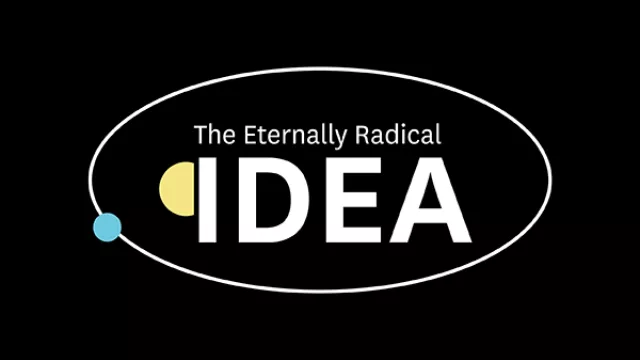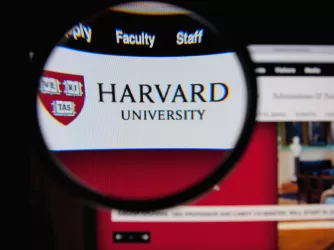Table of Contents
Rejecting the ‘heckler’s veto’

(Lawren Simmons / Special to the Sun / USA TODAY NETWORK
Student protestors wave signs and chant as they enter Sen. Ben Sasse's open forum discussion at Emerson Alumni Hall at the University of Florida.
One of the most disappointing free speech trends FIRE has seen in recent months and years is the increasing use of violence and other disruptive tactics to silence speakers on college campuses. This form of censorship, where a speaker’s event is canceled due to the actual or potential hostility of ideological opponents, is called the “heckler’s veto.”
The term comes from when a heckler — one seeking to silence a speaker — “vetoes” a speech by severely and substantially disrupting it so that it cannot continue. When a college cancels an event due to the disturbance (or even due to the potential for such a disturbance), the college grants a heckler’s veto to that individual. The term also encompasses situations when a college punishes students or professors for the potential or actual reaction to their expression, such as when it imposes large security fees on student groups for hosting a controversial speaker or revokes a professor’s network access due to complaints about the professor’s online speech.
Let’s first clarify that there is no First Amendment right to shout down a speaker. If a governmental actor, such a public university, sides with the heckler by canceling the event or refusing to protect the speaker against use of force, it has failed to uphold the speaker’s free speech rights. In Forsyth County v. Nationalist Movement (1992), the Supreme Court held that the First Amendment protects “[t]hose wishing to express views unpopular with bottle throwers . . . Speech cannot be financially burdened, any more than it can be punished or banned, simply because it might offend a hostile mob.” However, the First Amendment is generally not implicated in situations involving private colleges, and is not as strongly implicated in the case of speakers that come to institutions uninvited or without permission.
In order to protect free speech and ensure the safety of their educational communities, universities must clarify that the use of force to silence speech is not an exercise in free speech — it’s censorship.
This principle was applied to a student in Jones v. Board of Regents (1970), where the United States Court of Appeals for the Ninth Circuit struck down a university handbill ban after a student was removed from campus when threatened with violence for passing out anti-war handbills. The court stated the public university’s goal should have been “to prevent the infringement of [the student’s] constitutional right by those bent on stifling, even by violence, the peaceful expression of ideas or views with which they disagreed.”
The increasing use of the heckler’s veto is distressing considering that the judiciary has been overruling the heckler’s veto since the Civil Rights Movement, when black protestors were frequently arrested for peacefully occupying segregated areas because their acts unnerved and unsettled onlookers. The Court addressed this practice in Brown v. Louisiana (1966), ruling that the demonstrators’ First Amendment rights may not be curtailed merely because “their critics might react with disorder or violence.”
The heckler’s veto is rooted in the misguided belief that an argument can be defeated by forcefully shutting up its proponents. On the college campuses of a free society, a viewpoint gains acceptance in the “marketplace of ideas” by the persuasive power of the arguments in support of it, not the physical might of its advocates. Rather than using force to silence a speaker, the answer to speech with which one disagrees is more speech, not violence or censorship.

Shouting down speakers is mob censorship: Part 14 of answers to arguments against free speech from Nadine Strossen and Greg Lukianoff
Blog
Shouting down a speaker to stop an event from proceeding is mob censorship, full stop. It gives the shouters the power to dictate what anyone else is able to say or to hear.
Unfortunately, many colleges have recently ratified the heckler’s veto by canceling events featuring invited speakers in response to actual or perceived threats of violence or other disruption. In February, the University of California, Berkeley canceled a speech by then-Breitbart editor Milo Yiannopoulos due to fires, injuries, and vandalism caused by rioters. A month later at Vermont’s Middlebury College, a discussion featuring academic and writer Charles Murray was shut down mid-speech when a hostile mob drowned out Murray by chanting throughout his talk. This is in addition to numerous other examples of the heckler’s veto on display on campuses over the years, such as the cancellation of former New York City police commissioner Ray Kelly’s speech at Brown University in 2013 and the university-sponsored disruption of a student play at Washington State University in 2005.
If colleges continue to cancel student-planned speaker events due to the reactions of the speaker’s critics, they will only further encourage the illiberal tactics used to stifle expression on their campuses. By giving the heckler power to veto disfavored speech, colleges teach students that drowning out, shouting down, and assaulting those expressing differing opinions is an acceptable response to speech that they find offensive. Rewarding the bottle thrower by punishing the speaker only leads to more bottle throwers — and fewer speakers.
In order to protect free speech and ensure the safety of their educational communities, universities must clarify that the use of force to silence speech is not an exercise in free speech — it’s censorship. They must inform students that there is nothing liberal or tolerant about robbing their peers of the chance to listen to, learn from, and intellectually engage controversial speakers. They must explain the distinction between thoughtfully adding one’s voice to a discussion and arrogantly deciding what ideas are worthy of discussion in the first place.
To the students seeking to employ the heckler’s veto and the colleges deciding whether to grant it, imagine a world where this practice is morally acceptable. In the words of Council of Women World Leaders co-founder Laura Liswood in The Huffington Post:
How many cartoonists now think twice about their portrayals, not because they are not funny and gratuitous, but because they are now afraid of those who use violence rather than a pen as their means of expression?
I think about the young girls in Afghanistan who don’t go to school because of the violence it might provoke. It is punishing the girls rather than those who are committing illegal acts. . . . One should not be afraid to protest legally in front of an abortion clinic nor be afraid of going into a clinic, or being a doctor providing services because of the potential for violence. Witnesses don’t testify when they fear the results will harm them personally if they do. We anticipate and fear the reaction even though what we are doing is legal and what they are doing is illegal. The heckler wins even if they do nothing.
We become the problem rather than putting the blame where it belongs.
We urge our readers to identify this pernicious form of censorship, speak out against it, and deny the heckler the power to veto speech. Take a stand for free speech over mob censorship by rejecting the heckler’s veto once and for all.
Recent Articles
FIRE’s award-winning Newsdesk covers the free speech news you need to stay informed.

Revoking Harvard’s tax-exempt status will threaten all nonprofits

Grandpa’s advice for the new wave of American censors

FIRE POLL: Only 1/4 of Americans support deporting foreigners for pro-Palestinian views


